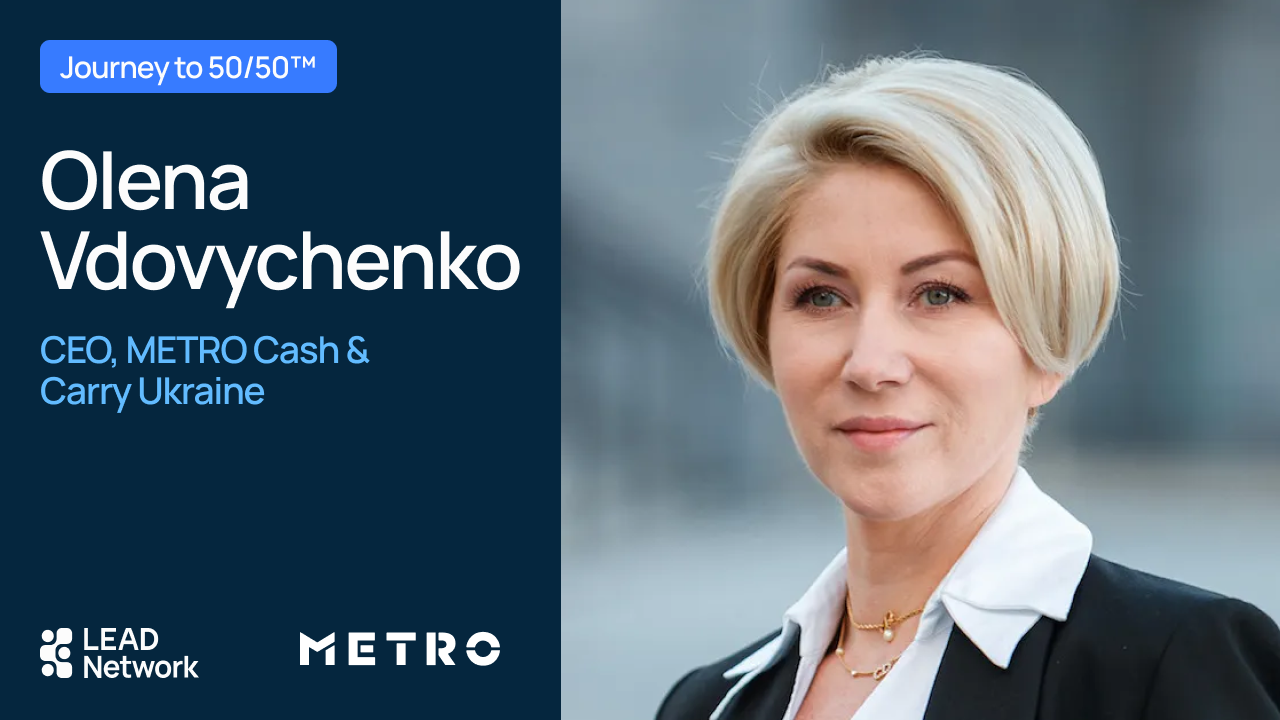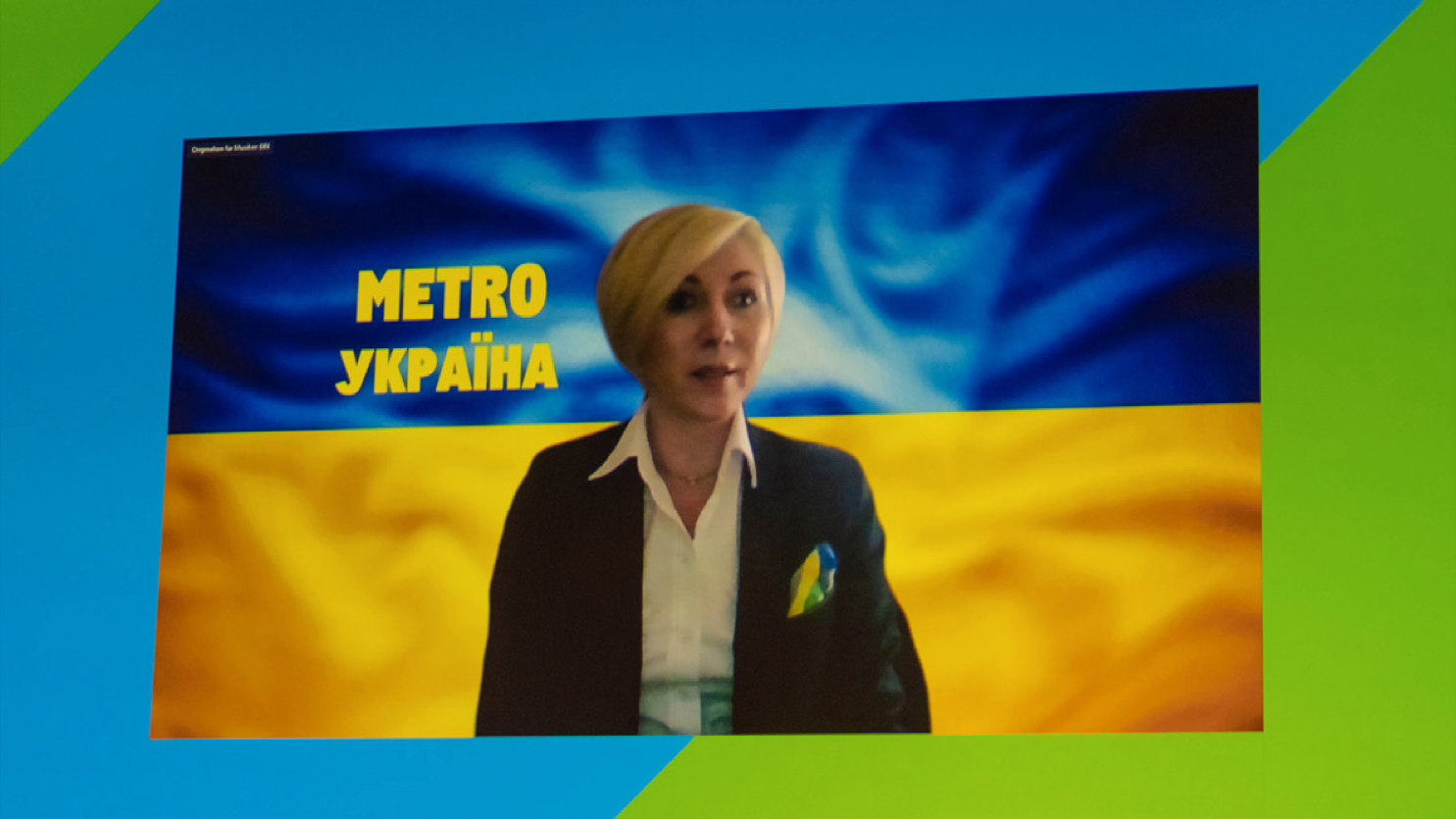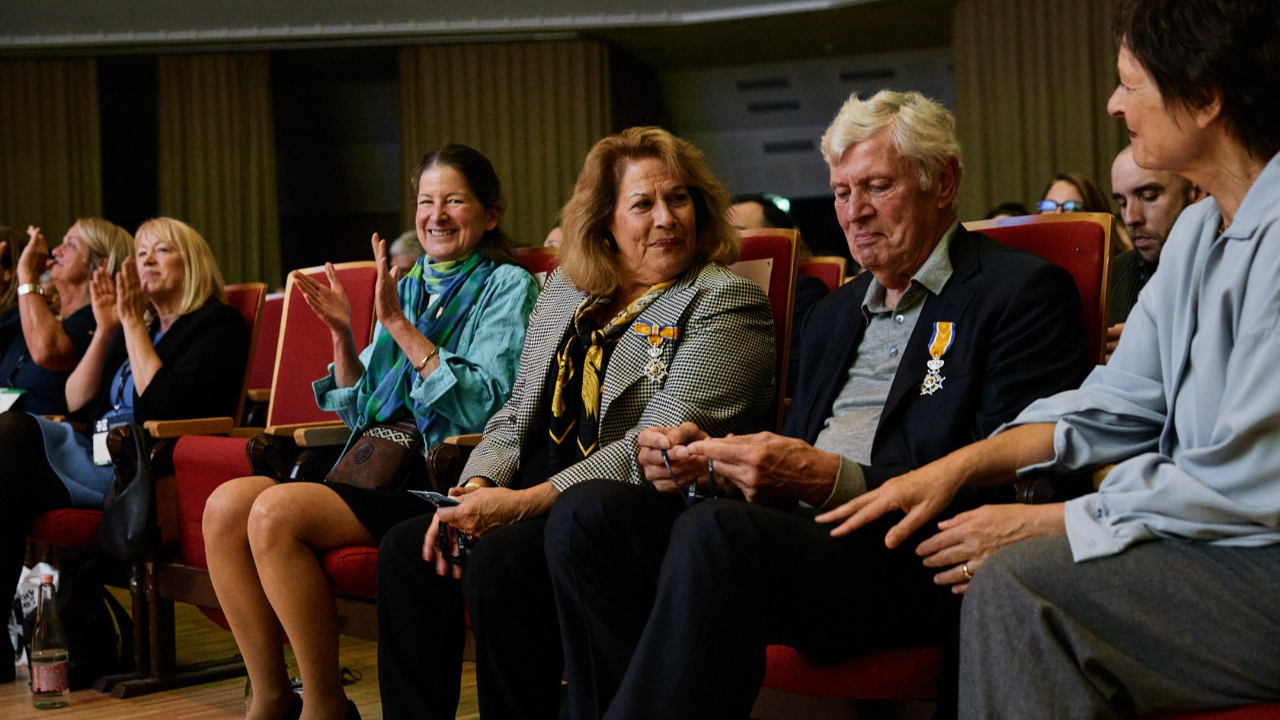Olena Vdovychenko of METRO: Leading in times of crisis

The Journey to 50/50 series is part of our commitment to sharing best practices among industry leaders. It aims to capture top-level insights for CEOs, by CEOs, to inspire those who are traveling a similar path.
This special edition of Journey to 50/50 is adapted from a speech Olena Vdovychenko gave via a live link from Kyiv at the LEAD Network conference in October 2022.
The outbreak of war
When war broke out I was coming back from holiday. There was a 70km-long queue of people and cars trying to leave the country and I was the only one returning. The emotion was so strong I will never forget it. My only thought was how to save and secure my family and team. My 14-year-old son and my mother were in a bomb shelter, and my great, courageous team were all over the country: 3,400 people, or 7,500 when you include their families. In 2021 we had made contingency plans; we had pre-paid buses in Mariupol ready to evacuate people, but no one expected a massive invasion from all sides.
Leading in times of crisis
Ukraine has been through two revolutions, plus the war in 2014, and Covid. During those crises, METRO learnt that if you care about the team, the team will care about the business. At the start of the war we only wanted to evacuate our teams and offer financial support. What really helped was our lean processes; we have always preached the empowerment of our teams. In crisis this is even more important because you give power to the fields so they can make fast decisions to support their people, their customers, and their communities without needing additional alignment with headquarters.
People around me were full of a mix of different emotions of their own, so I was talking more to myself than listening to advisers. I was listening to my intuition and what I think will be appropriate to secure the teams. This is such an unknown situation for every one of us, and you can’t advise on something you’ve never gone through.
Feeding the country
At the start of the war, 80% of the country’s businesses closed. Half later reopened, with 10% moving to the west of Ukraine. Around 100,000m2 of warehouse space in Kyiv was bombed to destruction. I can never praise my team enough; they managed to switch suppliers, showed creativity in finding new sourcing, and signed new contracts with smaller suppliers to provide the country with food. As a result, at the beginning of the war availability was 50% and it is now above 87%. Twenty two out of our 26 stores are open daily.

Olena Vdovychenko, speaking via live link from Kyiv
Uniting behind a bigger mission
In times of crisis you switch from KPIs to ‘keep people involved, informed and inspired’. Communication is a key success factor. We held twice-weekly town halls to let people know what was happening in the country, which stores were open, where we were reallocating them and what support was on offer. Later came smaller, more informal check-in calls so people could talk about their feelings and concerns.
This is where D&I comes in, the cognitive dimension, by which I mean people’s attitudes. For example, whether you stayed in the country or left; whether you’re physically in store or working remotely. The challenge is to keep the team united. What I did was never judge feelings: people have the right to feel what they feel.
All the emotions are very strong, so what we did was take these strong emotions and centre them on one big idea: victory; supporting the recovery of the country and our humanitarian mission. METRO’s campaign is ‘Heroes for Ukraine.’ I observed that differences of opinion faded in the face of this bigger mission.
Sharing vulnerability
What I can do for my team as a leader is to support shaping their language and how they can express themselves. I openly shared how I was feeling: scared, frustrated because I don’t know when this nightmare will finish. But how I deal with that is I’m focusing on the small, positive things that we achieve every day, such as a little bit better availability, and providing humanitarian aid to our communities and the military.
A broader definition of D&I
In crisis, D&I is not limited by the classical definition; it’s much broader. We never stopped working on D&I: in September we opened the Sunshine Café, where young people with Down’s syndrome bake pizza and bread for the military and the territorial defence force. I’m very proud that we can still support people who have a right to socialisation and employment.
Our next step is to reintegrate veterans. We have 130 young men and women from the company serving and protecting us on the frontline. One day they will come back and we need to be ready. We are adjusting the work- place and looking at psychological support, and training teams in how they will be able to help. I know one thing. We will win. And when we win, my team will be reunited.


